
The Free Press

Of all the heartbreaking moments from this past week, from the murder of three girls not much younger than my own daughter, to the violence and fear on our streets, there is one thought that I keep returning to: how avoidable it all might have been.
The warning signs have been present for years, but for every person who tried to tip-toe through the minefield of topics pertinent to this disorder—society, culture, religion, disenfranchisement, racism, the speed of change, feelings of powerlessness—there were ten more who wanted to bury their heads in the sand.
Even I, a brown man born in a Muslim country, feel the need to caveat what I say, and hide behind facets of my identity such as the color of my skin (facets that I largely consider unimportant) just to pass comment on things of importance to my country. The alternative is to be accused of insufficiently condemning the obviously condemnable by those who want to weaponize these issues for their own ends.
As it says in Jeremiah, “O foolish people, and without understanding; which have eyes, and see not; which have ears, and hear not.” Others, such as the author Douglas Murray, have been brave enough to warn that if the proper authorities do not grasp the nettle on issues of social cohesion and uniform upholding of the rule of law, then mobs will. He did not say this with glee but in deep lamentation.
This prediction has come to pass, and politicians of all stripes (including myself) must take responsibility for not trying harder to defuse the tensions. What else did you expect when every winning manifesto promised lower migration and every government ramped up the numbers, while refusing to allow enough houses and infrastructure to be built, and the bien pensant classes accused anyone who criticized this as racist?
Britain remains the most tolerant country on Earth, with the deep conservatism of a people who have inherited institutions, traditions, and customs that are the envy of the world. That is why so many people want to come here, to live the British dream as I have done.
But too many from outside these shores refuse to integrate upon arrival, to learn the language and to learn the ways of this place. They, or their communities, refuse to allow themselves to feel what Roger Scruton called oikophilia, a love of home. The British, and other English-speaking peoples, are wont to look at things in our “homescape” as we look at persons, not as means only, but as ends in themselves.
But the scale of new arrivals of sometimes very different cultures necessitates a robust encouragement toward oikophilia, an encouragement that has been completely lacking in Britain. This led to ghettoization and resentment between natives and recent arrivals. To suggest that this isn’t happening, and that concerns about the changes to local neighborhoods isn’t legitimate, just because you have foreign friends in your middle-class bubble is as ludicrous as saying: “I’m not racist because I have a black friend.”
On the flip side, I bow to no one in knowing how it feels to be hated and feared by dint of immutable characteristics. I still remember the pain of being bullied when I first came here, my family fleeing Saddam Hussein’s death squads. Unable to speak English, my teachers thought I had learning difficulties and my classmates called me a Paki. (They were indifferent to my attempts to correct them with impromptu lessons on the geography of the Middle East.)
But from terror attacks in the name of a radical interpretation of Islam, to marches on the streets of London that have prevented Jews from going outside, our unwillingness to engage with these issues has led to chaos. Islam is a great world religion, and most of its tenets are easily compatible with British values.
Where there are tensions, we should be fearless in working through them. For example, my great-grand uncle, Jamil Sidqi al-Zahawi, was a poet who criticized the veil as a social ill in 1920s Iraq. If that could be debated there, we surely have the ability to discuss all sorts of issues of integration in a constructive manner.
In societies with a heterogeneous citizenry, the academic literature is clear that we must do all we can to downplay the differences and find common ground. In our case the monarchy, pride in Britain’s past, and hope for our future should be touchstones. Instead, government, media, and institutions have desperately sought to highlight only differences—from Black Lives Matter to the gender wars—and are then surprised and disgusted when the disenfranchised white working class start thinking along those lines, too.
It doesn’t need to be like this.
One only has to look at the strides being made toward integration, from the personal to the geopolitical, in the Middle East itself. The UAE just jailed a large number of Bangladeshi migrant workers for rioting on the principle of law and order, without race or religion being involved. In east Asia, Lee Kuan Yew likewise provided another example in forging a secure polity with an uncompromising nation-building effort.
We need to do the same. An emergency national effort, akin to our vaccine rollout, is needed to find common ground, address concerns, and ruthlessly punish law-breaking, violence, and any formation of ad hoc militias on our streets. Emergency prisons must be contemplated alongside later court sittings and longer sentences.
Britain has many enemies without, who are not just licking their lips but probably stoking the fires. The Muslim Brotherhood is too active in British mosques, and doubtless the unholy alliance of Putin, the Chinese Communist Party, and the mullahs of Iran will be abetting the rioting from afar.
The hour may be growing late, but the United Kingdom and her people are more than enough to meet this challenge, to punish the wrongdoers while addressing the real concerns on all sides. It is past time to deal with this, but we must hide no longer. The enemy without will not sit while we fight each other. “Come the three corners of the world in arms, and we shall shock them. Naught shall make us rue, if England to itself do rest but true.”
Nadhim Zahawi is an Iraqi-born British politician who served in various ministerial positions under Conservative prime ministers, including Chancellor of the Exchequer. He is the author of the book, The Boy from Baghdad: My Journey from Waziriyah to Westminster, publishing August 29 in the UK. Follow him on X at @nadhimzahawi. This piece was first published in the Times of London.
To support more of our work, become a Free Press subscriber today:

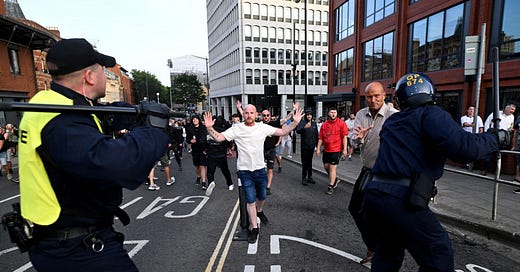


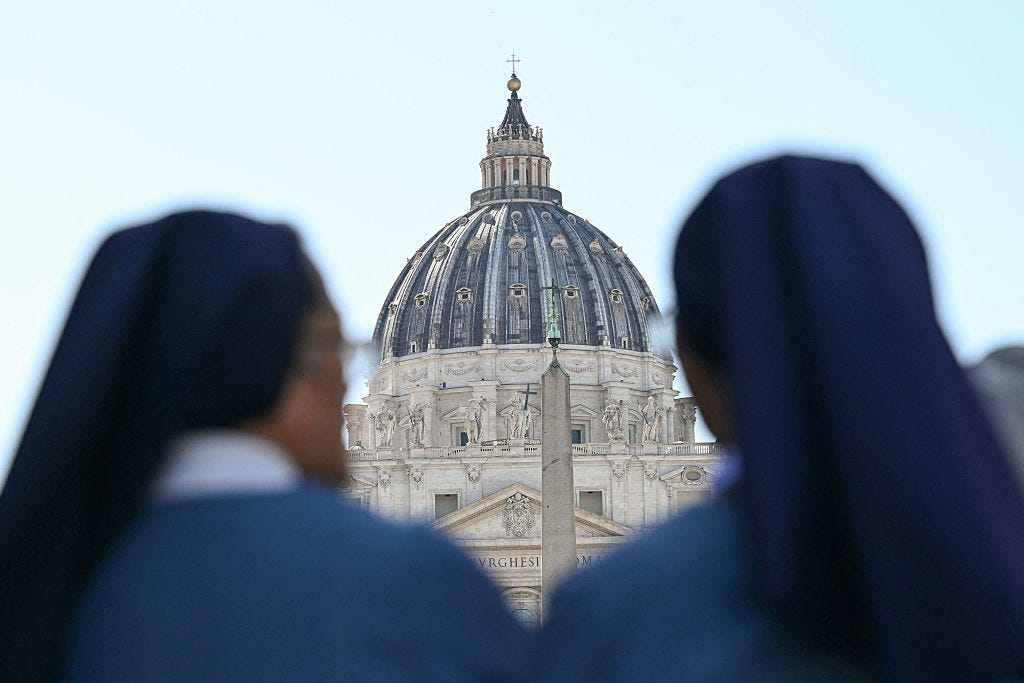

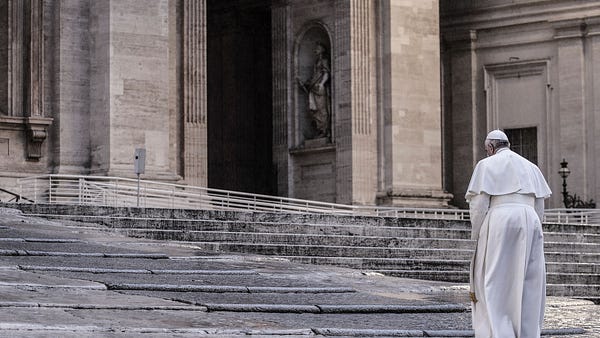



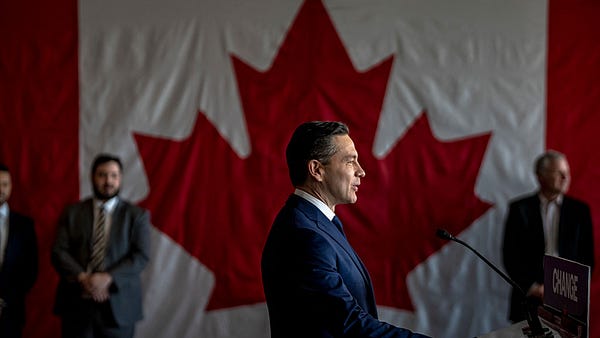

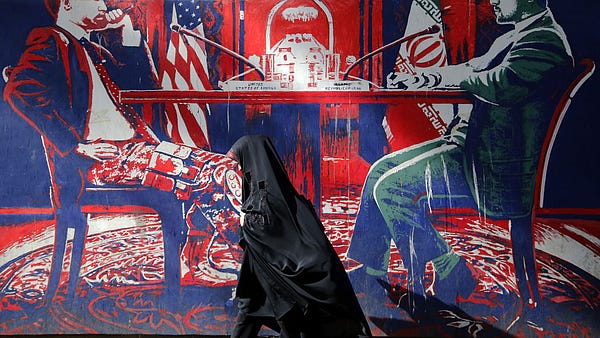

Meanwhile, in Bangladesh, Muslims are burning Hindus alive. There are quite a lot of Hindus there, certainly more than 10 million, there is a lot of work.
Its summer here in Texas, and hot, but in the summer, I get to go to see summer Shakespeare, which is a tradition in many of the cities where I've lived. Shakespeare is a gift to the world from the British, and it's sad to see that once great land decline into what it is today. Who voted in the UK or in the USA for mass immigration? It was against the law the whole time. Not enforcing the laws is how they got to this sorry state. How many atrocities committed by migrants will get the lazy government to enforce it's own laws? They've had train bombings, beheadings, car attacks, mass rapes of white girls, knives every day of the week, and now, cold blooded murder of children. The patterns is there but the UK government did nothing about it. Mark Steyn has written about this for years. The troubles there lying squarely in the laps of the UK governments that refused to protect their own citizens, whom they have many unattractive labels for. As in the US, the UK needs to break up not into England, Scotland and Wales, but into those that want to live and love their own culture, and those (often childless cat ladies) people who hate themselves and their own culture and would prefer to see it subsumed by immigrants.